What's On in conversation with: Wolf Man director, Leigh Whannell
The latest work from the new master of monster horror…
Writer-director Leigh Whannell received just acclaim for his soft reboot of gothic horror feature, The Invisible Man. For his next cinematic trick, he’s taking another classic monochrome era monster – the eponymous Wolf Man – and giving it a new set of fangs, fit for the 21st Century. It stars the magnificent Julia ‘if-you-want-to-stop-me’ Garner, and Christopher Abbott, who we’ll be seeing a lot more of in the very near future. Expect creative tension building, implied threat, gripping drama, and a few nights sleeping with the light on.
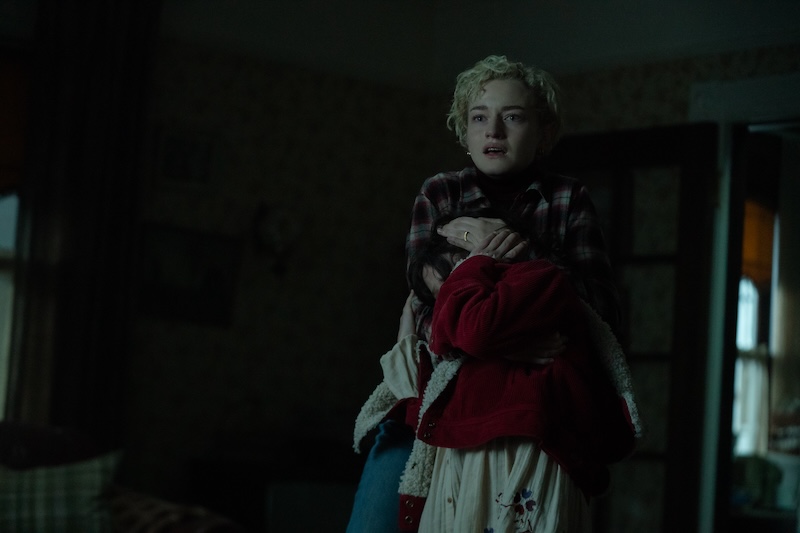
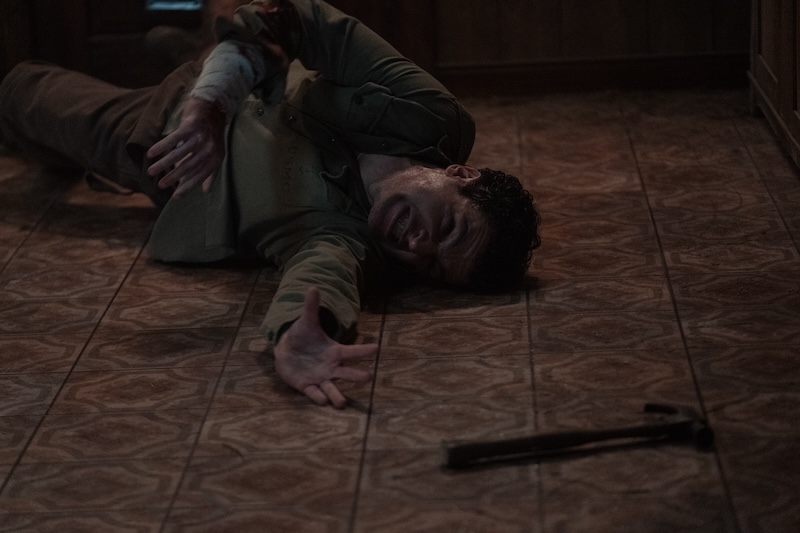
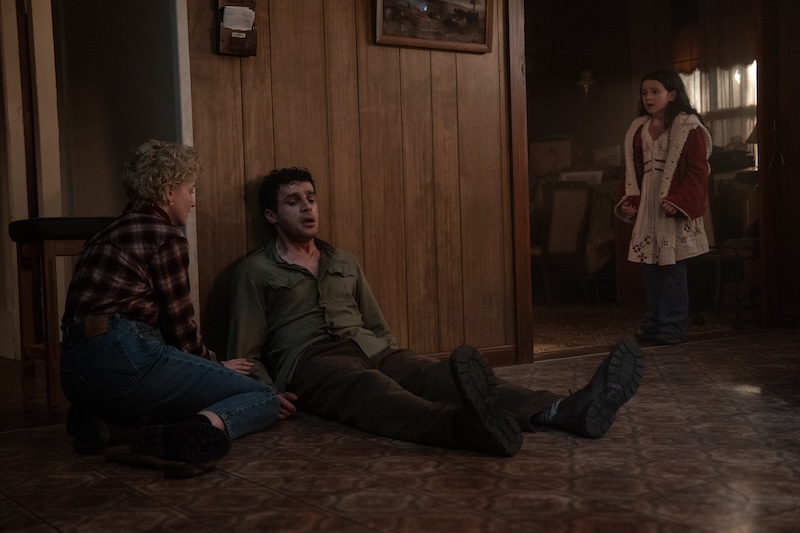
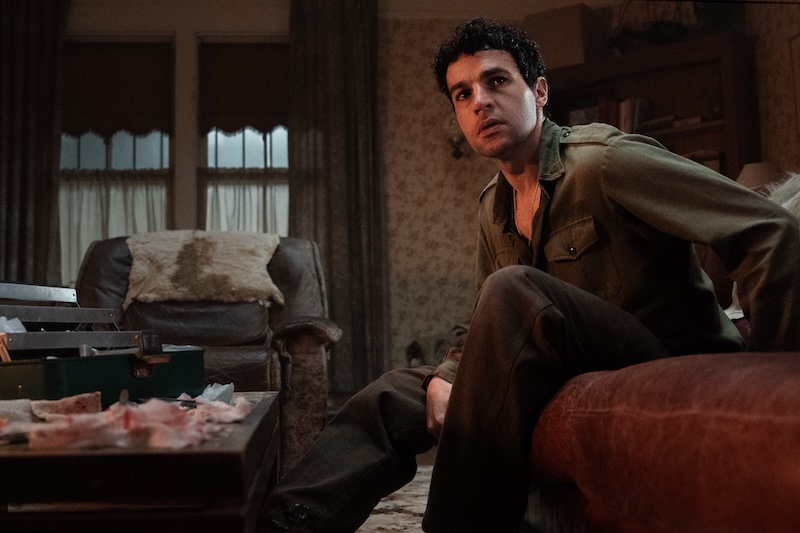
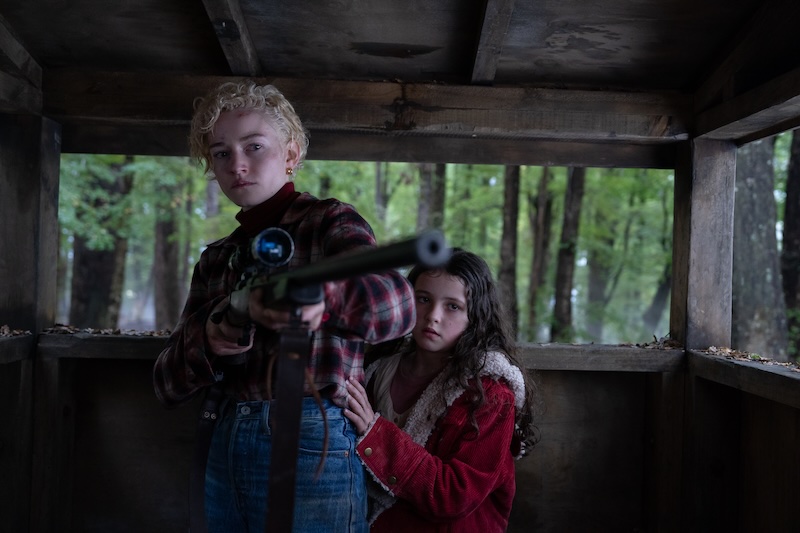
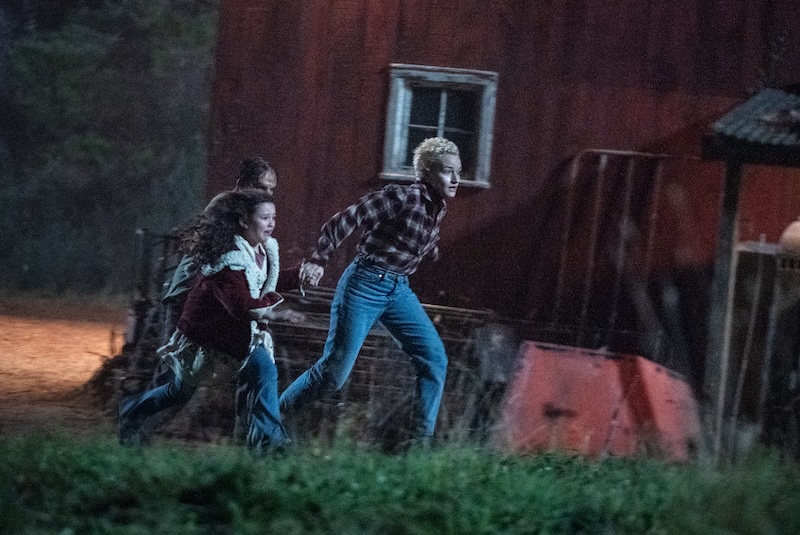
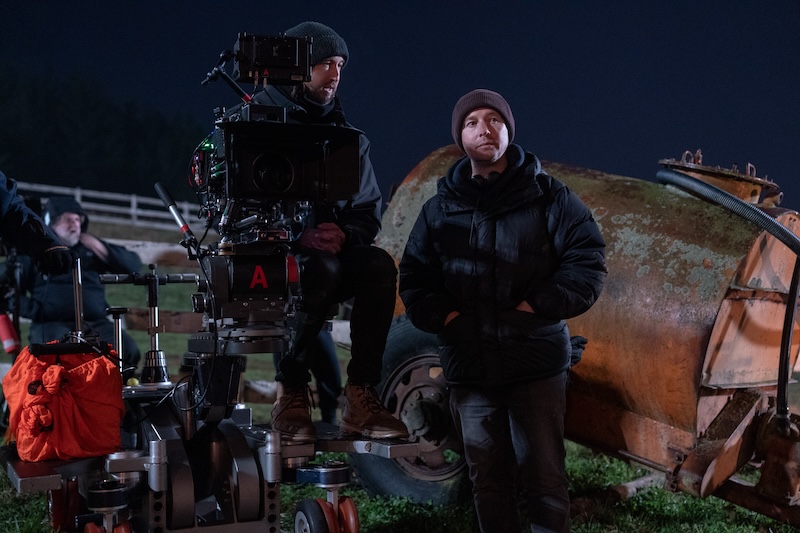
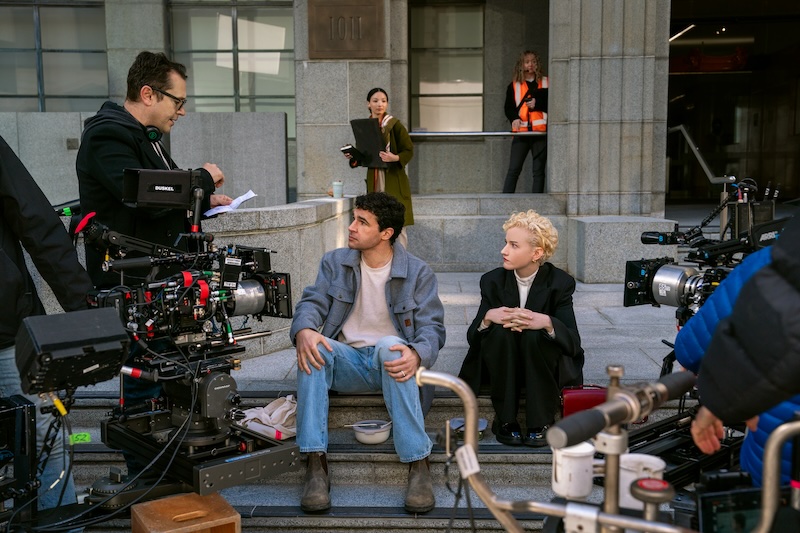
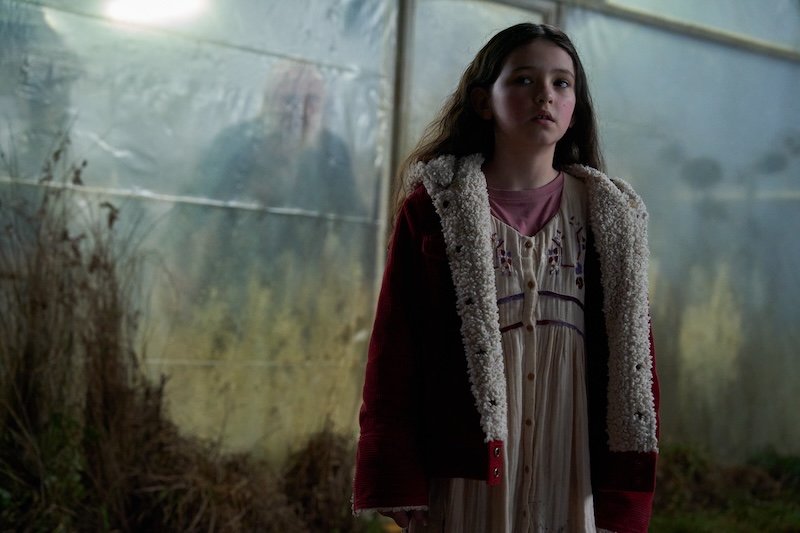











WOLF MAN
(from left) Charlotte (Julia Garner) and Ginger (Matilda Firth) in Wolf Man, directed by Leigh Whannell.
WOLF MAN
Christopher Abbott as Blake in Wolf Man, directed by Leigh Whannell
WOLF MAN
(from left) Charlotte (Julia Garner), Blake (Christopher Abbott) and Ginger (Matilda Firth) in Wolf Man, directed by Leigh Whannell.
Wolf Man
Christopher Abbott as Blake in Wolf Man, directed by Leigh Whannell.
Wolf Man
(from left) Charlotte (Julia Garner) and Ginger (Matilda Firth) in Wolf Man, directed by Leigh Whannell.
Wolf Man
(from left) Blake (Christopher Abbott), Ginger (Matilda Firth) and Charlotte (Julia Garner) in Wolf Man, directed by Leigh Whannell.
WOLF MAN
(from left) Director of Photography Stefan Duscio and Director Leigh Whannell on the set of WOLF MAN.
Wolf Man
(from left) Director Leigh Whannell, Christopher Abbott and Julia Garner on the set of Wolf Man.
Wolf Man
Ginger (Matilda Firth, right) in Wolf Man, directed by Leigh Whannell.
Wolf Man will be hitting UAE box offices on Thursday, January 16. But ahead of its release, we caught up with director Leigh Whannell for a quick chat about his influences, inspiration, horror loves, blurry CGI and smashed kneecaps.
What’s On: What new themes were you most keen on exploring in your interpretation of Wolf Man?
Leigh Whannell: The first direction I thought of was disease. If you take the idea of transformation, the cleanest, you know, thematic parable there is, is disease. The human body changing.
That’s probably the thing that scares me the most – that at some point I find out that I have some illness. This is going to change me in some way. I was talking to my brother about this yesterday.
My brother’s visiting me from Australia right now and I said to him, I would rather lose my body than my mind. Can you imagine if you have your memories erased? I always think like. If you don’t remember something that you did with your family 20 years ago, did it even happen?
It’s a tree falling in the forest with no one around to hear it. So it’s those facts, those facets of life are terrifying to me. So it just seemed a really neat way to tie in the Wolf Man story.
This movie and The Invisible Man, both involve a human antagonist, or at least someone that starts off as human, how important are these aspects in building good horror?
I think it’s the key. If you think about any horror movie that is lauded as a classic, whether it’s The Exorcist, The Shining, Jaws, Psycho, whatever it is, I think the core thing that links them is the characters. It’s never the concept.
It’s never the monster, to me. What makes The Exorcist work is that you believe in this little girl. What makes The Fly work is the performance of Jeff Goldblum. You put a different actor in that latex makeup, in that prosthetic makeup, you won’t have the same movie. And the writing in the film, you get to know this person and you love this person.
I think it’s everything. I heard a quote the other day, someone was talking about writing comedy and they said i’f you’re writing a movie and it’s a comedy, it should work as a drama. A comedy should be a drama that just happens to be funny and I think the same should be applied to horror.
I think you should be able to make a movie with these characters. You know, you should be able to tell Elizabeth Moss’ story in The Invisible Man without invisibility.
Could you share with us some of your favourite movies of all time, within the genre and outside of it?
I think if I had to pick a movie gun to my head, because I think about this stuff all the time. I think Jaws is my favorite movie for a few reasons.
One of them is that it’s the first movie that really affected me on a cellular level. That was the movie that broke my brain and made me want to make movies. And so I first saw it when I was about six years old. And I still love it as much today as I did when I was six. And just by sheer force of numbers, it’s the film I’ve loved for the longest.
And, I think it’s a monster movie, right? I’d say so. Unfortunately, maybe they demonised sharks in a way that they’re still dealing with today, right? But, if someone tells me it’s not a horror movie, I have to argue with them because it scared me. I couldn’t even, I couldn’t get in a bath.
John Carpenter’s The Thing is just a masterpiece. That is the one that embodies everything he does well and it’s a classic. The Fly, I think is brilliant.
I really did think that there was something very unsettling and demonic in The Witch, there’s a power to that film that is invisible. Sometimes you can look at a shot and you can see why that shot is effective. Or you can see a performance and you know why it is stuck in the public memory because the performance is so good and the dialogue they’re delivering is so well written.
I’m not sure what it is about that movie that affects me so much. It’s a synergy of elements. There’s no one thing I can point to and it feels satanic.
Can we talk about special effects, and how much of your time is spent throughout the process in making sure, that it looks right and, and also… what does ‘right’ look like to you?
That’s a great question because I do spend a lot of time with CG, you really do have to police it and there are so many talented people on this film. I worked with a company called FIN VFX who are based in Sydney and they’re very talented artists.
But ultimately myself and editor, Andy Canney are sort of the bottleneck. We’re the gatekeepers between them and the movie, and I spend a lot of time focusing on the tiniest visual. And to answer the question, ‘what does quality look like to you?’ I actually think that sometimes de-emphasising it, looks better.
I would often say to FIN, can we put this out of focus a little bit? I think letting the film absorb the effect rather than sticking it right there as a shiny object in the audience’s face. I would rather blend it with the practical elements and de-emphasise it.
So I guess the short answer quality visual effects, to me, are the ones that you deliberately layer over with less quality. It seems like a counterintuitive thing to say to a visual effects artist, ‘can you put that thing that you just made with great care out of focus?’
Defocus it a little bit. But even Stuart, who is the sort of lead visual effects person on this from FIN, agreed. That’s the type of visual effect he loves too. He wants the audience to be completely oblivious to these effects. It’s something that I think about a lot.
Another reason that we’re all super excited to watch the movie is the cast. How did you go about assembling that?
I think the first person we went after was our Wolf Man. There were a lot of names, but Chris Abbott was one that kept coming up. I knew of his work and was a fan of his, but what tipped me over was seeing him do a play off Broadway in New York.
I flew to New York the day of the play, I threw my bags down in the hotel, went straight out, got there as the lights were going down. And his performance, it was a two-hander – there were only two actors in the play – and he was just so intense in that play.
The night after I saw him, he broke his knee on stage halfway through the play. And performed the rest on a broken knee. He was in agony. The rest of the play’s run, he’s on crutches. And when he came to me in New Zealand, he was still having physio on his knee.
Which I was worried about, because I’m thinking, this guy’s got to move a lot. He’s a monster. He was so intense in that play he shattered his kneecap, so when I walked out of that play, I knew he was the guy.
Julia was someone I knew well. I’ve seen many of her films and the TV shows she’s been a part of. And I just felt lucky to have her. She’s one of those rising young actors that everybody knows is great. Like, I feel like there’s a crop of young actors where the quality of their performances is what they’re known for. They’re not known for their influence or count, and they’re not known for the fashion line they’re doing on the side, it’s really just dedicated actors. So I just felt lucky that she said yes.
Matilda was someone we found after looking at dozens and dozens of young people all across the world. She, she was from the UK, from Leeds I believe. I hope I don’t get that wrong. She was from Leeds, and she’s the most grounded little girl.
Her parents are not actors or anything. They’re not forcing her into this business. Very unassuming and very cute, but she also has this really sophisticated understanding of emotion. For a child her age, you almost think when you’re talking to her on set, is she getting this? You know, is she hearing what I’m saying? And then she just intuitively knocks it out.
So, um, yeah, I’m so happy. I didn’t have to cast many people. It wasn’t a cast of thousands. I love every one of them.
Images: Provided
